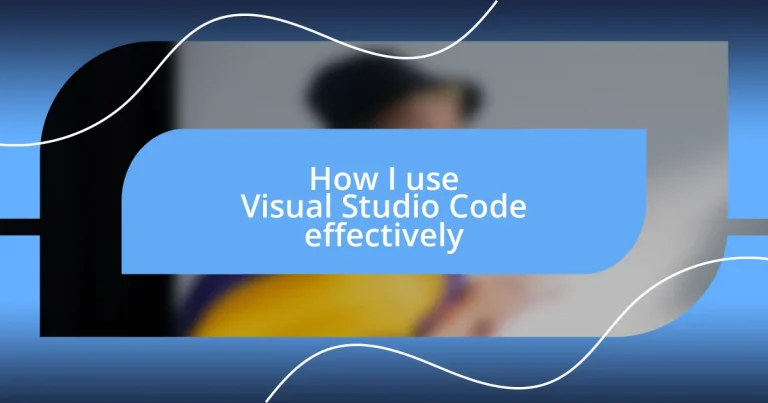Key takeaways:
- Customizing the Visual Studio Code interface, including themes and workspace organization, significantly enhances focus and productivity.
- Leveraging extensions like Prettier and GitLens improves coding efficiency and makes the development process smoother.
- Establishing a clear project structure and consistent naming conventions fosters better organization and collaboration within development teams.
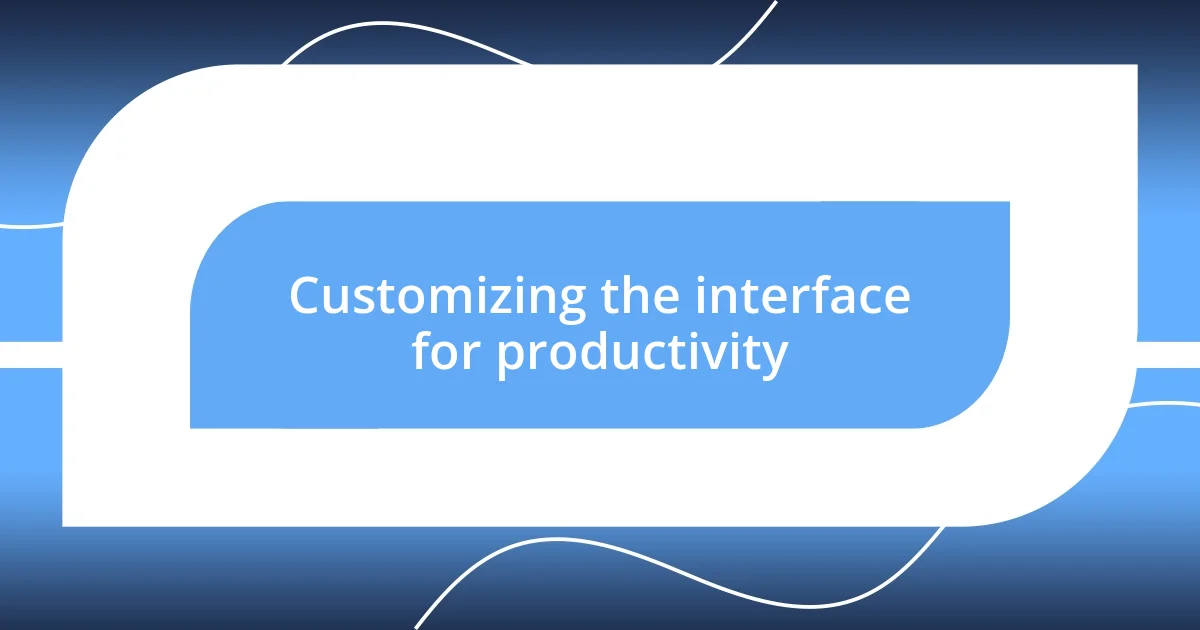
Customizing the interface for productivity
When I first started using Visual Studio Code, I quickly realized that the default layout just didn’t work for me. I was scrolling through endless tabs and losing track of my work. By customizing the interface to hide unnecessary panels and streamline my workflow, I found that I could focus much better on coding rather than navigating my environment.
One feature I love is using different themes to set the right mood. There are days when I need a dark theme that helps me concentrate; on other days, a lighter, brighter theme lifts my spirits. Have you ever noticed how color can influence your productivity? Choosing the right theme not only makes the interface more appealing but can also keep you motivated throughout long coding sessions.
Another tip that transformed my workflow is organizing my workspace with specific extensions tailored to my projects. For instance, I installed a file explorer extension that allows me to group related files together. I can’t tell you how much this simple tweak has reduced my stress! Every time I sit down to code, I don’t just see files scattered everywhere; I see a clear path forward. Isn’t it comforting to know you’re in control of your workspace?
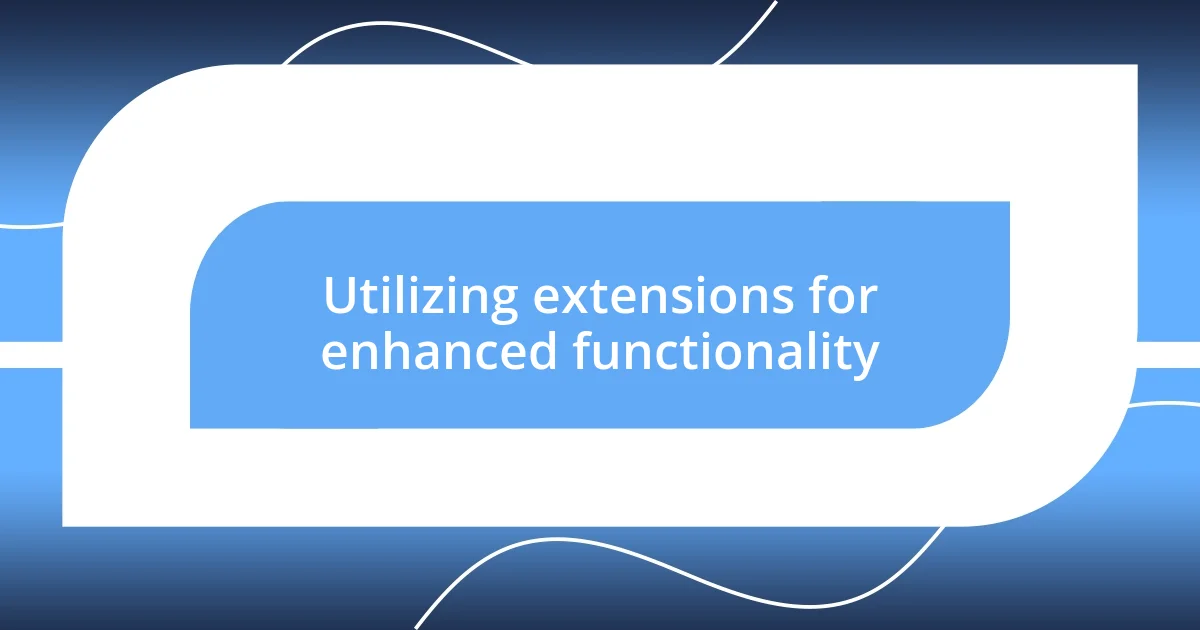
Utilizing extensions for enhanced functionality
An essential aspect of using Visual Studio Code effectively lies in leveraging its extensive ecosystem of extensions. I remember the first time I stumbled upon the Live Server extension; it felt like magic! Instantly reflecting my changes in the browser made for a much smoother development process. I often find myself experimenting with various extensions, and each one can dramatically enhance my workflow in its unique way.
Here are a few extensions I’ve found invaluable:
- Prettier: Automatically formats my code to maintain a clean and consistent style.
- GitLens: Elevates my version control experience, providing insights into who, why, and when code changes were made.
- Bracket Pair Colorizer: Helps me quickly identify matching brackets, especially in complex functions or nested structures.
- Debugger for Chrome: Simplifies debugging by allowing me to set breakpoints directly in my code.
Each time I find a new extension that perfectly fits my needs, it not only boosts my productivity but also reignites my excitement for coding. There’s something incredibly satisfying about customizing my environment just right, turning Visual Studio Code into a personalized toolkit that truly works for me.
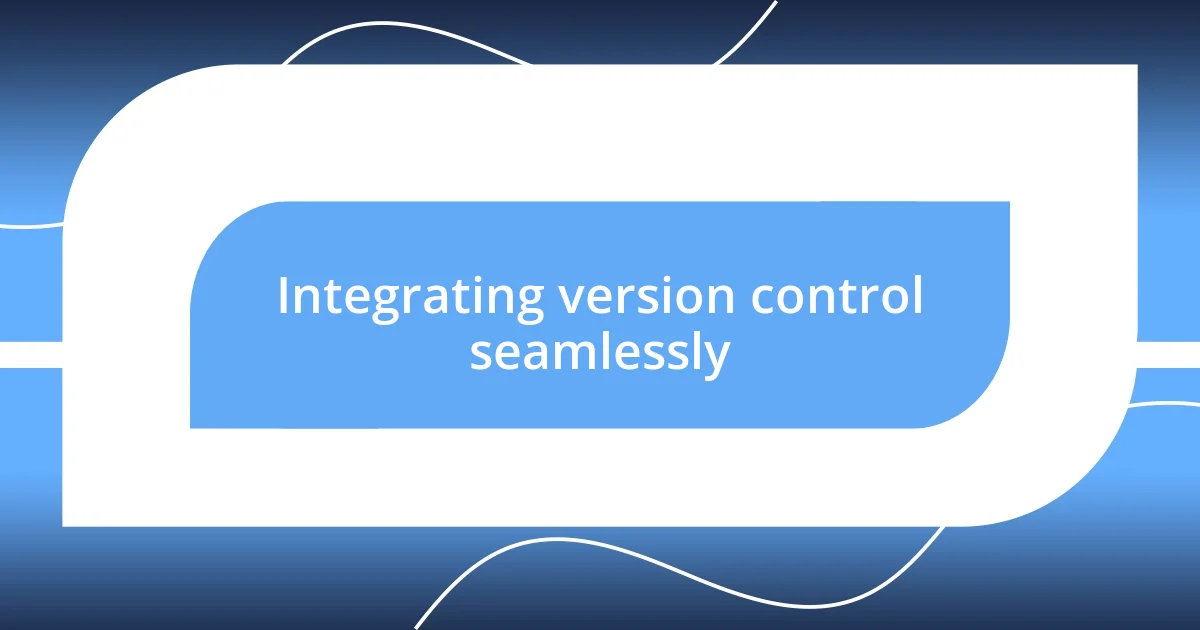
Integrating version control seamlessly
When I began using version control in Visual Studio Code, I was amazed at how seamlessly it integrated into my workflow. I often found myself overwhelmed by the idea of managing project files, but with Git integration, I discovered that tracking changes became a breeze. I vividly remember the first time I used the Source Control panel; it felt empowering as I could directly see my commits and changes without toggling between different applications. Have you ever experienced that moment when everything just clicks? It’s like the difference between searching for a needle in a haystack and having the needle right in your hand.
Seeing version control visualized in the sidebar has made my coding sessions much less stressful. For instance, using features like branch management directly in the editor allows for smooth switching between features or fixes. I can think of a particular project where I was rapidly iterating on a feature. Instead of worrying about losing my progress, I could confidently jump between branches with just a few clicks. This fluidity has transformed how I approach coding, knowing everything is tracked and recoverable.
Here’s a comparative summary to clarify how different version control approaches stack up:
| Method | Integration Level |
|---|---|
| Built-in Git | Seamless, visual representation in the interface |
| Command Line | Powerful but requires switching environments |
| Third-party tools | Additional functionality but can disrupt workflow |
Finding that balance between convenience and control was key for me. How do you experience version control in your coding? I hope you find it as valuable as I do!
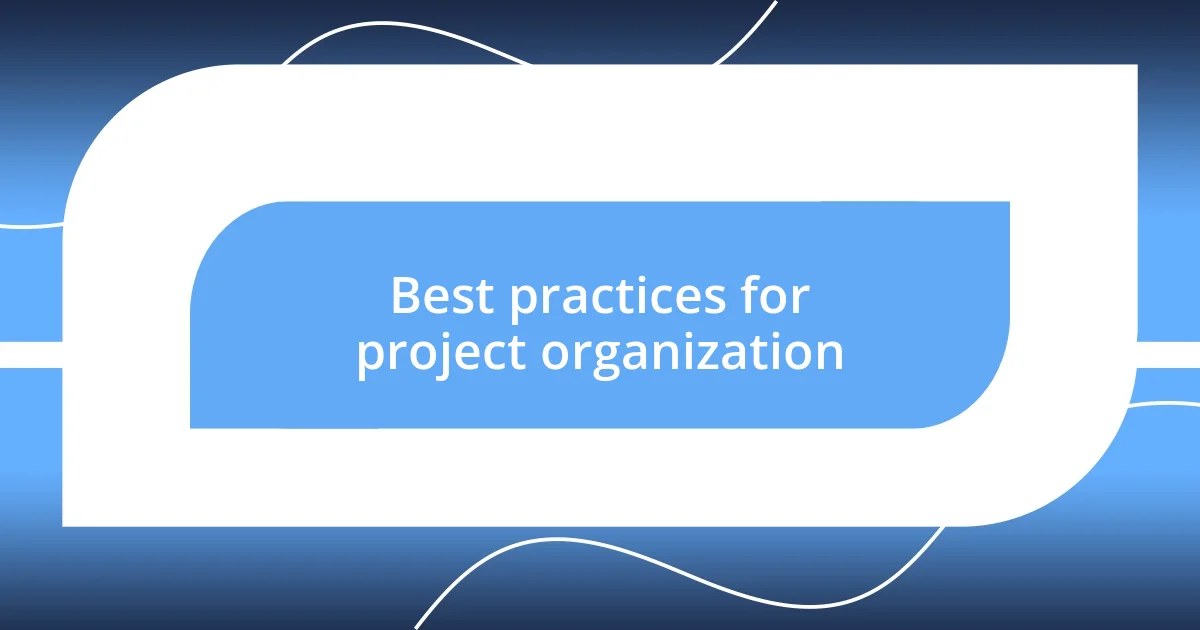
Best practices for project organization
Organizing projects in Visual Studio Code can make all the difference in productivity. One practice I’ve adopted is creating a clear folder structure right from the start. For instance, I typically divide files into folders like src, assets, and tests, which helps keep everything organized. I remember working on a large app where I neglected this step, and as the project grew, finding files became a frustrating scavenger hunt! It taught me the value of establishing a logical layout upfront.
Another practice is utilizing filenames and comments effectively. I’ve found that descriptive filenames convey the purpose of a file at a glance. For example, instead of naming a file script.js, I prefer something like user-authentication.js. It adds clarity to the project and makes collaboration smoother, especially when teammates can easily find what they’re looking for. Have you ever had to sift through obscure names? It can feel like decoding a mystery instead of tackling the task at hand!
Lastly, I advocate for using workspace settings tailored to specific projects. Customizing settings such as indentation and formatting at a project level means consistency for everyone involved. I vividly recall a team project where we didn’t set these preferences ahead of time, and the code looked wildly different from developer to developer. It caused unnecessary confusion and slowed our progress. So now, ensuring our workspace settings align before diving in is non-negotiable for me. These small efforts towards organization pay off immensely in the long run!












